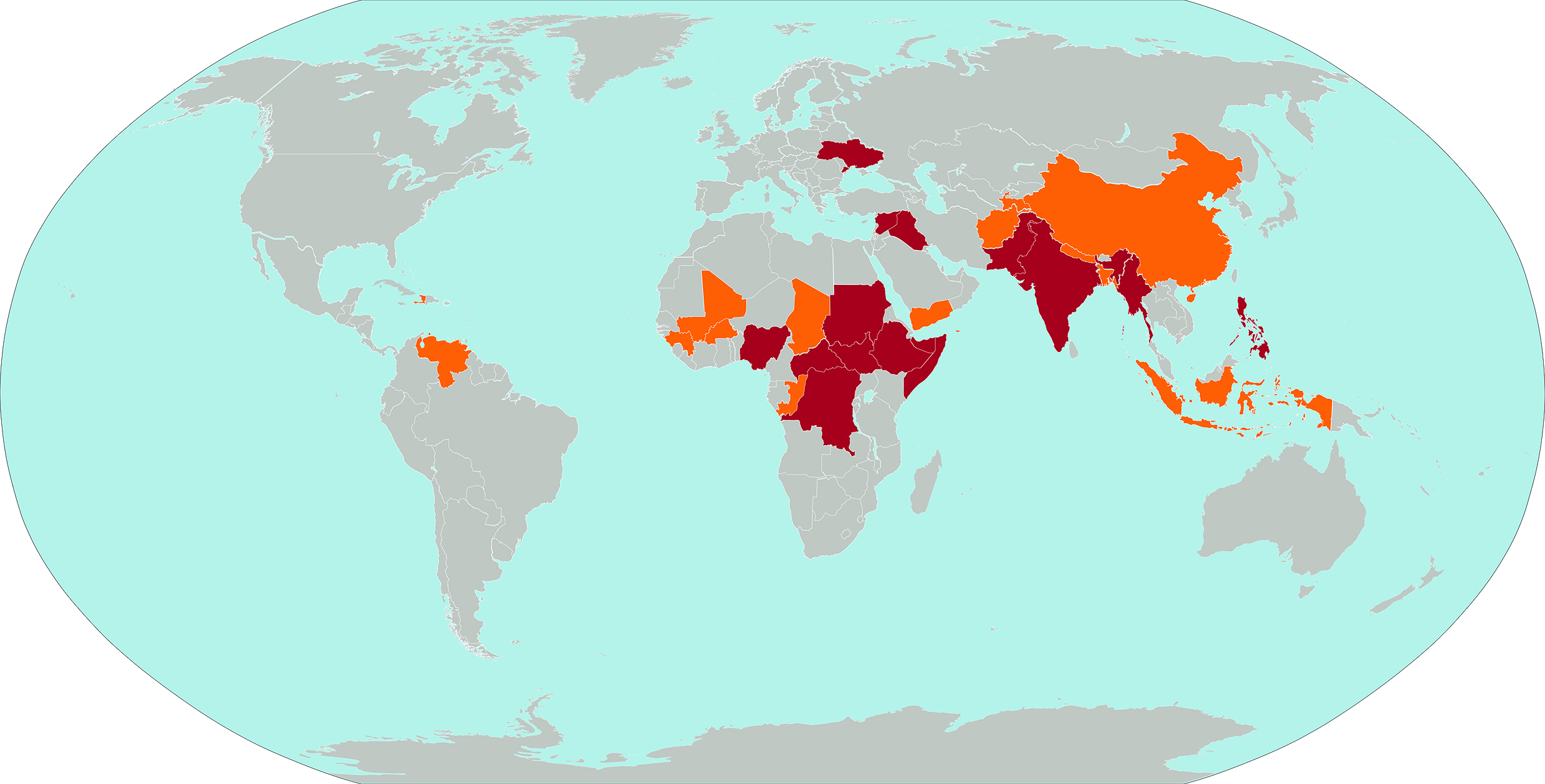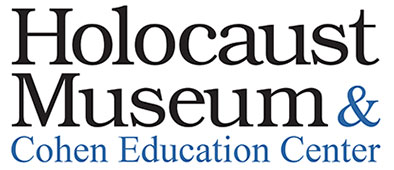
Nepal
Since the conclusion of the Nepalese Civil War in 2006, Nepal has faced various forms of identity-based discrimination. The government has neglected to respond to ongoing violence against the lowest religious caste, the Dalits, and other ethno-religious minorities. The government also forcibly evicted indigenous peoples from their lands to make national parks. Furthermore, women have faced severe discrimination, including child marriage and rape.
Chad
In response to an attempted coup by insurgents in April 2021, Chad’s military suspended constitutional rights, dissolved parliament, and set up the Transitional Military Council to govern indefinitely. This political instability allowed terrorist groups like Boko Haram to threaten Chad’s population. In addition, ethnic and political discrimination, violence from insurgent groups, and restrictions on the movements of the male population have increased Chad’s risk for mass killing significantly.
Yemen
Since the outbreak of the Civil War in 2015, Yemen has faced one of the most severe humanitarian crises of the modern day. Both the Iran-backed Houthi rebels and the Yemeni government have interfered with the movement of humanitarian aid, have created famine and food insecurity, and forced displacement on the population, leaving over 17.4 million people without necessary provisions. Numerous horrific war crimes against civilians and a restriction of the movement of the male population has put Yemen at very high risk of mass killing in the near future.
Afghanistan
In August 2021, following the withdrawal of all U.S. troops from Afghanistan, the Taliban took over the government and reversed any gains in democratic freedoms over the previous twenty years. This includes discrimination against women, who have been systematically excluded from Afghan society. Also, the Taliban’s history of mass killing, as well as ongoing identity-based discrimination and violence against Sikhs, Sufis, and members of the Hazara community has caused the country to be the site of one of the worst humanitarian crises in the modern era.
China
Though the Chinese government has vehemently denied accusations of identity-based discrimination against Uyghur Muslims in the Xinjiang province, there is substantial contrary evidence. Testimonies from former detainees verify that up to 2 million Uyghurs and other Muslim minorities have been forcibly displaced and sent to detention centers, where they have been subjected to forced sterilization, sexual violence, child kidnapping, re-education, and enslavement.
India
In recent years, there has been identity-based discrimination, violations of civil rights, and violence toward Muslim minorities throughout India. This includes the desecration of mosques, forced displacement, calls for mass killings, and the destruction of Muslim-owned property. In Muslim majority regions like Kashmir and Jammu, retaliatory, identity-based discrimination has been carried out against Hindus. As of the end of 2021, mass killings by Naxalite-Maoists have occurred in the state of Chhattisgarh.
Ethiopia
Since fighting erupted in the Tigrayan region in 2020, identity-based discrimination and mass killing against Tigrayan civilians in Ethiopia has led to the death of around 465,000 people. Ethiopian Security Forces, supported by Eritrean Armed Forces and Amhara Special Forces, have taken key towns and cities in the Tigrayan region, forcing displacement and starvation on the local population. In addition, restricted movement of men and sexual slavery of Tigrayan women and children have been reported.
Nigeria
Since 2009, the Nigerian government, criminal gangs, and Islamic extremists like Boko Haram committed numerous mass killings, forced displacements, and enslavements of the population. In addition, inter-communal conflict and conflict over scarce resources between farmers and herders have resulted in the displacement and starvation of thousands of people.
Syria
Since the outbreak of civil war in 2011, Syria has faced state-led, extremist non-state, and outside actor violence and mass killing. The Syrian government has been accused several times of using chemical weapons, which is as a war crime. Also, Turkey, through a series of air strikes, has engaged in identity-based killings of Syria’s Kurdish population as a supposed reprisal for a terrorist attack in Istanbul in 2022. Other parties, like the Islamic State, have engaged in forced starvation, sexual violence, displacement, and genocide.
Democratic Republic of the Congo
For decades, the Democratic Republic of the Congo has experienced disunity between its many ethnic groups, leading to the onset of militias, violence, and civil war. Ethnic groups such as the Congolese Hutu and Tutsi and the Hema have recently faced mass killings, with genocidal hate speech running rampant in regions like North and South Kivu. In addition, the Batwa forest people have faced genocide and forced displacement due to exclusionary conservation policies, resulting in mass starvation.
South Sudan
Since the outbreak of civil war in 2013, South Sudan has seen the formation of numerous militias because of identity-based violence and ethnic group fragmentation. These militias have deliberately targeted civilians, perpetrated mass killings against opposing ethnic groups, rape, torture, and the kidnapping and recruitment of children. These factors, along with restrictions on movements of the male population, have left over 8.3 million people dependent on humanitarian support.
Ukraine
Since the start of the Russo-Ukrainian War in 2022, Russia has repeatedly denied committing genocide in Ukraine. Disguising them as “de-Nazification” tactics, the Russian military has perpetrated identity-based killings, child kidnapping and re-education, forced displacement, and stripping Ukrainians of their citizenship. Independent studies have described the events such as Bucha and the kidnapping of children as having genocidal intent.
Somalia
In 2022, Somalia saw more than a 40% increase in mass killings of civilians because of the ongoing conflict between the government and terrorist groups like al-Shabaab and the Islamic State. In addition, famine has ravaged the country due to al-Shabaab’s control of trade ports, the continuous issue of piracy, and forced displacement. Al-Shabaab has also restricted the movement of the male and female population and forced many into slavery.
Iraq
For decades, Iraq has been the site of numerous mass killings, genocides, wars, and dictatorships. The Iraqi government, ISIS, and various gangs have engaged in identity and religious-based discrimination against women, LGBTQ+, Yazidis, Shi’ite and Sunni Muslims, and Assyrian Christians, resulting in frequent forced displacements and disappearances. Sadly, the government’s participation in these practices and their reluctance to intervene suggests that these issues will continue for many years to come.
Philippines
Since 2016, President Rodrigo Duterte’s government has perpetrated numerous crimes against humanity in the Philippines. Disguising his persecutions as a “war on drugs” and an anti-Terrorism campaign, Duterte has enabled identity and political based discrimination, violence, extrajudicial killings, and restrictions on the rights of indigenous peoples. International criticisms have only served to increase persecutions, with activists, journalists, human rights groups, and media outlets facing mass killings and incarceration.
Sudan
Since Omar al-Bashir’s regime was ousted in 2019, Sudan has struggled to maintain a stable government and has faced contested governance of border regions. This situation has increased tensions between ethnic, religious, and regional groups. State and non-state actors like the Rapid Support Forces and Arab militias have perpetrated identity-based discrimination and violence against non-Arabs, leading to mass killing and displacement.
Republic of Congo
In recent years, the Republic of Congo’s vast ethnic makeup has caused identity-based violence. Government forces and members of the Mbochi Tribe have harassed ethnic groups such as the Bakongo. These issues have caused the restriction of movement for men and women of the population. In addition, border disputes with the Democratic Republic of Congo and Central African Republic have increased tensions even further.
Bangladesh
For over a decade, identity-based violence between Muslim rebels and Christian militias. like the Seleka and anti-Balaki, have ravaged the Central African Republic. These developments have led to the displacement of over 80% of the country’s Muslim population. In addition, tensions regarding presidential elections have led to numerous parties, like the Coalition of Patriots for Change, Russian mercenaries, and National Security Forces committing horrific war crimes.
Mali
Continuing conflicts along ethnic lines push Mali towards mass killing. Ongoing conflict between the Peul, Bambara, and Dogon ethnic groups raise fears in Central Mali. In addition, Tuareg groups continue to grow closer to fighting each other as well as other ethnic groups in Northern Mali. These all affect the effectiveness of the Malian government and raise the chances of mass killings occurring in the region.
Burkina Faso
Multiple 2022 coups and continuing political stability in Burkina Faso have led to violence and non-government militias committing human rights violations. Continuing conflict with Islamist military groups has led to regular killings during internal conflicts as well as war crimes and other human rights violations.
Pakistan
Political stability in Pakistan has declined rapidly since 2022. Former Prime Minister Imran Khan dissolved parliament and was then removed from office. This spurred mass protests which led to the arrests of thousands. Anti-blasphemy laws threaten religious minorities and their ability to live in Pakistan, with attacks occurring against them often. In addition, the Tehrik-e Taliban Pakistan (TPP) continue their twenty-three-year campaign of mass killings that further destabilize the nation.
Tajikistan
The targeting of the Pamiri minority group in Tajikistan’s Gorno-Badakhshan autonomous region has increased as of 2022, with authorities attacking those protesting inequality, religious discrimination, and human rights violations. In addition, there have been reported human rights violations connected to border conflicts between Tajikistan and Kyrgyzstan.
Indonesia
Indonesia and its response to the West Papua region’s political issues has led to severe repressions. Security forces have used excessive force against peaceful protests, which has led to increasing armed conflict. They have also targeted media and organizations during these crackdowns. This continues a history of violent responses and mass killings enacted by the government against political opponents and minority groups wanting independence.
Guinea
In an attempt to continue power, former President of Guinea Alpha Condé violated term limits established by a previous constitution. His response to widespread protests included killing hundreds and suppressing opposition as a whole. His response prompted a military coup that has added additional instability atop deteriorating economic conditions and growing ethnic conflict. These, along with a history of mass killings and military coups, make it likely that mass killings will continue to occur.
Haiti
With the 2021 assassination of President Jovenel Moïse, Haiti’s government has not been able to stabilize conditions for politics or for safety. With gangs actively fighting across the country, the United Nations has sent a taskforce to try to prevent the rise of violence and sexual crimes from occurring. The capital, Port-au-Prince, is a site of violence, sexual assault, and acts of killing for minor infractions of gang-enforced rules.
Venezuela
The 2024 Venezuelan election has raised concerns of election manipulation, political polarization, systemic oppression, and violence. President Nicolás Maduro has declared victory over Edmundo González and falsely claims that election equipment was hacked. In response to protests over his actions, Maduro and his security forces have arrested thousands and have not released yet key records relating to the election.
Bangladesh
The political instability created by multiple crises in Bangladesh has created an environment where violence could break out between the public and the government. High unemployment, political corruption, and employment quotas for government positions have led to large-scale protests, military crackdown, and the shooting of protestors. As a result, the international community has called for the Bangladeshi government to cease actions against protesters and work towards peace with a new civilian government.
Central African Republic
For over a decade, identity-based violence between Muslim rebels and Christian militias. like the Seleka and anti-Balaki, have ravaged the Central African Republic. These developments have led to the displacement of over 80% of the country’s Muslim population. In addition, tensions regarding presidential elections have led to numerous parties, like the Coalition of Patriots for Change, Russian mercenaries, and National Security Forces committing horrific war crimes.
Burma/Myanmar
The Muslim Rohingya people have been subjected to ongoing killings and persecution by the military of Myanmar since 2017. Forced displacement and loss of citizenship and rights has impoverished the Rohingya and led to famine and disease outbreaks, causing more deaths. Rohingya villages have been destroyed by the military through air strikes and army raids, killing those who have not fled from the Rakhine region.


